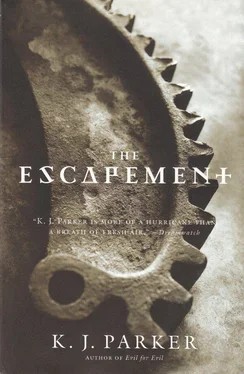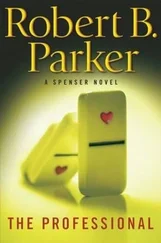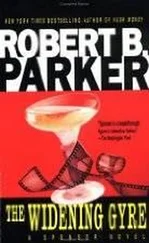K Parker - The Escapement
Здесь есть возможность читать онлайн «K Parker - The Escapement» весь текст электронной книги совершенно бесплатно (целиком полную версию без сокращений). В некоторых случаях можно слушать аудио, скачать через торрент в формате fb2 и присутствует краткое содержание. Жанр: Фэнтези, на английском языке. Описание произведения, (предисловие) а так же отзывы посетителей доступны на портале библиотеки ЛибКат.
- Название:The Escapement
- Автор:
- Жанр:
- Год:неизвестен
- ISBN:нет данных
- Рейтинг книги:4 / 5. Голосов: 1
-
Избранное:Добавить в избранное
- Отзывы:
-
Ваша оценка:
- 80
- 1
- 2
- 3
- 4
- 5
The Escapement: краткое содержание, описание и аннотация
Предлагаем к чтению аннотацию, описание, краткое содержание или предисловие (зависит от того, что написал сам автор книги «The Escapement»). Если вы не нашли необходимую информацию о книге — напишите в комментариях, мы постараемся отыскать её.
The Escapement — читать онлайн бесплатно полную книгу (весь текст) целиком
Ниже представлен текст книги, разбитый по страницам. Система сохранения места последней прочитанной страницы, позволяет с удобством читать онлайн бесплатно книгу «The Escapement», без необходимости каждый раз заново искать на чём Вы остановились. Поставьте закладку, и сможете в любой момент перейти на страницу, на которой закончили чтение.
Интервал:
Закладка:
About an hour before sunset, the officer started picking his way along the hold, looking at them all. It was impossible to guess what he was looking at, and he didn't say anything, but he seemed preoccupied and a little bit scared. After he'd peered at them all, he climbed up on a barrel and started talking to them in a loud voice, which seemed a bit strange after they'd had to keep quiet all day.
They were here, the officer said, to carry out a daring raid into the heart of enemy territory. That, in fact, was where they were right now (oh, Linniu thought, not liking the sound of it much). As soon as it was dark, they were going to float downstream in dead silence until they reached the headquarters of the enemy army, where they'd disembark quickly and quietly and, fully exploiting the element of surprise, set fire to some sheds, shoot off as many arrows as they had time for, then back on the boats and away off out of it before the enemy had time to react. Provided they didn't make a noise and give the game away, there shouldn't be any problems. He had every confidence, their cause was just, they were fighting for the very survival of freedom and their way of life, and a lot of other stuff like that. Then he repeated: no noise, get off the boat when I tell you to, set fire to the sheds-great big things, couldn't miss them-shoot arrows, leave quickly. All there was to it.
During the very long hour of total silence that followed, Linniu contemplated the things the officer hadn't said: what they were to do if anything went wrong; who'd tell them what to do, and how he'd tell them, in the pitch dark, with people running in all directions as like as not, arrows everywhere, and burning buildings too; or (even more puzzling) what good getting back on the boats was supposed to do them, when the current would carry them further downstream, instead of back upstream, the way they wanted to go. It was, of course, impossible that the clever men who ran the People's Defence Force hadn't thought of something as elementary as that; in which case there was a plan, and presumably the officer hadn't had time to tell them about it. He wondered what it could be, and whether it had something to do with standing-with-feet-together-they'd gone to the trouble of teaching them how to do it, after all, so it had to come in somewhere.
In any event, he reflected sadly, he could kiss his seventeen arrows goodbye. Ninepence for a new set still left him threepence out of his pay, but Father wasn't going to be happy when he got home. He'd set his heart on the thoroughbred boar.
Very gently, without warning, the boat started moving again. He glanced up at the sky, because it was his only source of information. Getting dark-he realised he'd lost track of time, and tried to work it out. The heavy black cloud made the light an unreliable gauge, but his best guess was that it was past afternoon milking, getting on for shutting up the poultry and feeding the horse. In which case, dark in an hour. He wondered how soldiers managed to calibrate the passage of time, since their days were so often different. At home, if you knew the season and the time of day, you knew exactly where you'd be and what you'd be doing, and surely that was the way people were supposed to live. All the uncertainty of the military life must unhinge your head, sooner or later.
Movement or progress, there was a danger in confusing the two. They were moving, slow and steady, down the river and into darkness, but without knowing where he was or what was happening, he had no idea if things were going right or wrong. Not knowing where he was-he thought he'd been getting used to that, after a lifetime of certainty, but apparently not. He could feel panic stirring inside, but did his best to ignore it. If he had any part to play in all this, panic wouldn't help. For the first time, he was quite sure he regretted coming on this adventure, valuable treasure or no valuable treasure.
It was quite dark now, and he couldn't make out the man sitting next to him. He knew his name, where he was from, how many acres and the size of his herd, the bare essentials, but that was all. That wasn't good. When the time came, if there really was going to be fighting, he'd need to know a lot more about all his companions if they were going to work together. He'd never had to co-operate before with someone he hadn't known all his life.
From time to time he heard scraping, which he identified as the branches of trees brushing against the side of the barge. It sounded murderously loud, and weren't they supposed to be keeping quiet? It was just as well, he told himself, that the officers knew what they were doing. But they were proper soldiers, and there wasn't anything to worry about. If there was one thing he could rely on in this whole baffling, disconcerting experience, it was that they wouldn't have been entrusted with men's lives unless they knew everything there was to know about soldiering. That was why he'd been trained to trust them implicitly.
The barge shook; it must've hit something, or run into the bank. Someone shouted, and Linniu thought, no, be quiet; but whoever it was shouted again, and he realised they were receiving orders: get up, move, let's go. But the voice sounded scared.
He jumped to his feet, collided with someone, staggered, fell against someone else. A boot crushed his instep. He suddenly realised he hadn't even strung his bow yet; of course he hadn't, nobody had told him to, so presumably he wasn't meant to do it. He thought about the sergeant's much-repeated phrase, wait for the command. Someone shoved him in the small of the back, pushing him forward. He couldn't see where he was supposed to be going.
Shouting; not on the boat, and he couldn't make out the words. Then someone yelled. He'd heard a yell like that before, just once, a barn-raising at his cousins' place, when the youngest son of the farm fell off a scaffolding and broke his leg. It meant someone was in trouble; and then he thought, well of course, this is a war. A thought like that was an odd thing to have in his mind.
More pushing, shoving, stumbling. He barked his shin on something, and realised it was the rung of a ladder. Was he supposed to climb up it? Nobody had said. Then someone grabbed his arm and dragged him forward, and there was nowhere else to go but up the ladder. It was awkward, with his bow in his right hand and not being able to see. He climbed, and then ran out of rungs. Someone pushed him; he felt himself fall, thought, this can't be right, and landed in mud.
He expected people to laugh, because that was what happened when you did a spectacular belly-flop in deep, sticky mud; he must've got it wrong, and now they'd be ribbing him about it for ever. But no laughter, and he heard a body land very close beside him, felt muddy spray on his face. Apparently that was how you got off a boat in the People's Defence Force. Strange way to go about things.
Getting to his feet wasn't easy. His hands were full of mud. He paused, trying to wipe them clean, because you couldn't hold or use anything if your hands were clogged and slippery. He scrabbled about for his bow and found it. He'd landed on it and snapped it in half. Disaster.
Disaster, because a good bow cost tenpence; because the only reason for him being there at all was to use the bow, and he couldn't now, could he? Obviously he had to tell someone; they were relying on him to play his part in this manoeuvre, and before it had even started he'd contrived to render himself completely useless. They were going to be so angry; but first things first, they had to be told. Then, presumably, he'd have to get back on the boat and wait until it was all over. His boots were full of mud, and he felt completely stupid.
Finding someone to tell… There were shapes, bodies, moving all around him, and it suddenly occurred to him that he was out of position and in danger of being left behind. It'd be like getting out of line in a woodland drive, one man could wreck everything. Bad enough that he'd broken his bow. The last thing he wanted was to make it even worse.
Читать дальшеИнтервал:
Закладка:
Похожие книги на «The Escapement»
Представляем Вашему вниманию похожие книги на «The Escapement» списком для выбора. Мы отобрали схожую по названию и смыслу литературу в надежде предоставить читателям больше вариантов отыскать новые, интересные, ещё непрочитанные произведения.
Обсуждение, отзывы о книге «The Escapement» и просто собственные мнения читателей. Оставьте ваши комментарии, напишите, что Вы думаете о произведении, его смысле или главных героях. Укажите что конкретно понравилось, а что нет, и почему Вы так считаете.












